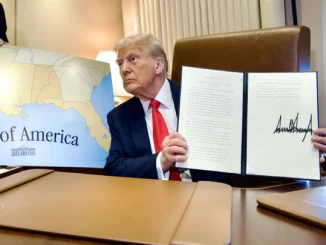
U.S. President Donald Trump arrives to speak about the mid-air crash between American Airlines flight 5342 and a military helicopter on Jan. 30, 2025, in Washington, DC. (Oliver Contreras / AFP via Getty Images)
| Published May 14, 2024
The upcoming Russia–Ukraine peace talks in Istanbul, scheduled for Thursday, May 15, 2025, represent a pivotal moment in the ongoing conflict. While both nations have agreed to send delegations, the participation of key leaders remains uncertain.
Key Developments
-
Ukrainian President Volodymyr Zelenskyy has expressed willingness to attend the talks but insists on direct negotiations with Russian President Vladimir Putin. He has publicly challenged Putin to meet face-to-face, emphasizing that only Putin has the authority to end the war.
-
The Kremlin has confirmed that a Russian delegation will participate but has not disclosed whether Putin will attend. Spokesperson Dmitry Peskov stated that the delegation’s composition would be announced once President Putin provides instructions.
-
U.S. President Donald Trump has indicated a possibility of attending the talks, stating, “He’d like me to be there, and that’s a possibility… I don’t know that he would be there if I’m not there. We’re going to find out.” However, Turkish officials have expressed skepticism about his attendance, though preparations are underway for any scenario.
-
Brazilian President Luiz Inácio Lula da Silva has pledged to personally urge Putin to attend the negotiations, emphasizing the importance of direct dialogue in resolving the conflict. International Involvement
The talks have garnered significant international attention:
-
United States: Secretary of State Marco Rubio, along with special envoys Steve Witkoff and Keith Kellogg, are expected to attend the Istanbul meeting to aid in resolving the ongoing conflict.
-
Turkey: President Recep Tayyip Erdoğan is set to meet with President Zelenskyy, continuing Turkey’s role as a mediator in the conflict.
-
Brazil: President Lula’s involvement underscores the global interest in resolving the war, with Brazil positioning itself as a neutral party advocating for peace.
Outlook
The Istanbul talks present a critical opportunity for de-escalation, but the uncertainty surrounding the attendance of key leaders like Putin and Trump casts doubt on the potential for significant breakthroughs. The international community remains hopeful that direct negotiations can pave the way for a ceasefire and, ultimately, a resolution to the conflict.
The upcoming Russia-Ukraine peace talks in Istanbul carry significant implications for international diplomacy, regional stability, and global power dynamics:
1. Potential for Conflict Resolution:
-
Hope for Peace: If successful, the talks could lead to a ceasefire, reducing casualties and economic disruptions in the region.
-
Risk of Stalemate: Without direct engagement between Presidents Putin and Zelenskyy, the talks could fail to achieve meaningful outcomes.
2. Russia’s Diplomatic Standing:
-
Opportunity for Legitimacy: Putin’s participation could signal Russia’s willingness to engage diplomatically, improving its global image.
-
Isolation Risk: If Russia is seen as obstructing peace, it could face further diplomatic and economic isolation.
3. U.S. Foreign Policy Influence:
-
Trump’s Potential Role: Trump’s possible attendance could either facilitate negotiations or polarize the talks, depending on his approach.
-
Biden Administration’s Position: The presence of U.S. envoys (Marco Rubio, Steve Witkoff, Keith Kellogg) reflects continued U.S. involvement but may also showcase divided U.S. influence with Trump’s parallel diplomacy.
4. Turkey’s Mediator Role:
-
Strengthened Geopolitical Position: Hosting the talks bolsters Turkey’s image as a regional peace broker, enhancing its diplomatic leverage.
-
Balancing Act: Erdoğan must carefully balance relations with both NATO allies and Russia to maintain credibility.
5. Involvement of Brazil and Global South:
-
Emerging Mediation Role: Brazil’s active push for peace highlights a growing willingness among Global South nations to mediate in global conflicts.
-
Multipolar Diplomacy: This engagement reflects a shift towards a more multipolar world, where non-Western countries influence global diplomacy.
6. Regional Security Dynamics:
-
Ripple Effects: Successful talks could de-escalate regional tensions, benefiting Eastern Europe and the Black Sea region.
-
Continued Uncertainty: Failure may embolden Russia to intensify its military campaign or prompt Ukraine to seek further Western military support.
Overall Takeaway:
The Russia-Ukraine peace talks in Istanbul present a critical opportunity for diplomacy, but their success hinges on the participation of key leaders like Putin and Zelenskyy. The talks highlight a complex geopolitical landscape where traditional Western powers, emerging Global South nations like Brazil, and mediators like Turkey compete to shape the outcome. Without genuine commitment from both Russia and Ukraine, however, the negotiations risk becoming another missed chance for peace.
SOURCES: NEWSMAX – Kremlin: Ukraine Peace Talks in Turkey Are Still On
REUTERS – Putin and Trump still ‘maybes’ for Ukraine peace talks that Russian leader proposed
AL JAZEERA – Kremlin declines to say if Putin will meet Ukraine’s Zelenskyy in Istanbul
THE KYIV INDEPENDENT – Trump unlikely to attend Russia-Ukraine peace talks in Istanbul, Bloomberg reports





Be the first to comment